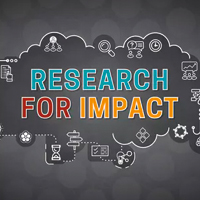Research for Impact MOOC by the University of Cape Town and Oxfam

- Level: Introductory
- Time commitment: 20 hours approximately
- Learning product: Course (MOOC)
- Sector: Multi-sector
- Language: English
- Subtitles: French, Portuguese (European), Russian, English, Spanish
- Location: Global
- Certificate: Yes (available from Coursera)
Introduction
The Research for Impact online course proposes a shift from doing research on people, to doing research with people, making research practices actively work towards positive socio-environmental impacts. Climate change will have diverse and uneven social impacts, necessitating research that actively pursues positive social outcomes in collaboration with participants.
“What we try to explain in this course is a shift from the idea that research produces results which are then somehow taken up in policy and practice to a much more engaged and process-based way of maximizing the chance of the research being used” Mark New, course director
This MOOC is organised by UCT and Oxfam, and is taught by the creators of the Research for Impact approach, Mark New and Jesse DeMaria-Kinney. Each weekly module also features researchers and practitioners reflecting on their use of the approach.
Video introduction to the course
Go toResearch into Impact course for full syllabus including videos, readings and quizzes
Institutional background and trainers
The Research for Impact MOOC was made in a collaboration between Oxfam GB and the University of Cape Town.
- Oxfam Great Britain is a charity working with communities and partners towards a world without poverty. They are part of the Oxfam international confederation which works in 67 countries, in 5 continents and with more than 3,500 partner organisations.
- The University of Cape Town (UCT) is South Africa’s oldest university, and is one of Africa’s leading teaching and research institutions. UCT has more than 80 specialist research units that provide supervision for postgraduate work and is home to more than a third of South Africa’s A-rated researchers – academics who are considered world leaders in their fields.
Course directors
Mark New, Director of the African Climate Development Initiative (ACDI)
Jesse DeMaria-Kinney, PlanAdapt and Associate of the African Climate Development Initiative (ACDI)
Who is this for?
The course is designed for participants who:
- Wish to aquire the tools to give research projects more socio-environmental impact.
- Want to learn about how research project design approaches can incorporate complex systems, wicked problems and multiple stakeholder considerations.
- Work in researsh or development at a professional level.
Training Material
The six-week online course is hosted on Coursera, and is taught through weekly modules (with an estimated total completion time of 20 hours):
Week 1:Introduction to Research for Impact
Exploring the five key elements of the Research for Impact approach, wicked problems, and transdisciplinarity. Featuring experiences from India and Botswana.
Week 2:Planning for Impact
Learning how to work towards positive impacts in complex systems using Theory of Change and Impact Pathways tools, as well as monitoring and evaluation to plan for success in dynamic situations. Featuring experiences from East Africa.
Week 3: Engaging and Partnering
Discussing the significance of equal partnerships in stakeholder engagement, as well as reflection on actors who may be variously affected by the outcome of the research. Featuring experiences from Ghana and Botswana.
Week 4: Communicating for Impact
Moving beyond traditional research dissemination to impactful communication of research results, as well as discussing the importance of knowledge brokers. Featuring experiences from India and Botswana.
Week 5: Building Capacities
Working towards mutual capacity-building for both researchers, stakeholders, and partners, acknowledging that no one group will have all the knowledge and skills required when starting a project. Featuring experiences from India and Mail.
Week 6: Influencing for Impact
Learning how to align all the elements of Research for Impact, and how to implement them to influence stakeholders to pursue interventions with positive socio-environmental impacts. Featuring experiences from Ghana.
Go to Research into Impact syllabus for videos, readings and quizzes
(0) Comments
There is no content